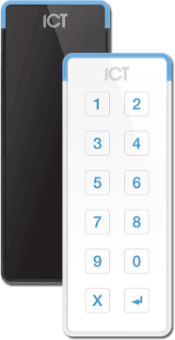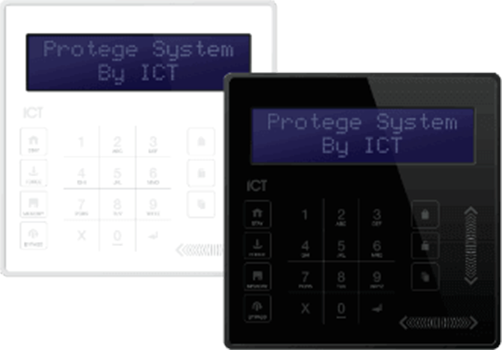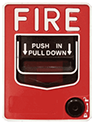Video MGMT System
 Access Control
Access Control
Voice & Data Wiring
 Burglar Alarm
Burglar Alarm
 Fire Alarm
Fire Alarm
Video MGMT System
Voice & Data Wiring
THOUGHT CENTER > Blog > Security Cameras
February 22, 2024
Mammoth Takeaways
In the bustling world of business and organizational security, keeping your watchful eyes—your security cameras—in tip-top shape is non-negotiable.
Businesses are four times more likely than homes to be victimized by property crimes like vandalism and burglary. It’s a jungle out there, and your security cameras are your first line of defense, guarding both people and assets.
But, as with any technology, they need a bit of TLC to keep running smoothly.
So, let's roll up our sleeves and dive into the nuts and bolts of security camera maintenance.
Think of your security system as a high-performance vehicle.
You wouldn’t expect your car to run forever without a little maintenance, right? The same goes for your security cameras.
Setting a schedule for routine check-ups is the cornerstone of a reliable security system and the #1 advice for anyone seeking a long-lasting, reliable surveillance system.
Whether it’s monthly, quarterly, or bi-annually, establish a schedule that suits your CCTV camera needs and set it to repeat in your calendar or the calendar of your security team.
Here’s a quick run-down of components to check during routine check-ups:
Obstacle Course: Ensure the camera’s view is free from any new obstacles, be they foliage, bird nests, or the aftermath of the latest storm.
Update Central: Software and firmware need to be up-to-date to fend off cyber nastiness and keep your system running smoothly and with integrity.
Lens TLC: A clear lens means a clear picture. Gently wipe away any dust, dirt, or smudges with a soft, clean cloth.
A spotless lens is your best friend in the world of security camera maintenance.
Even the smallest smudge can turn a crystal-clear image into a detective’s worst nightmare. So, here’s the scoop:
For outdoor cameras, you’re battling the elements, so a regular monthly wipe-down and additional wipe-downs after bad weather is advisable.
Indoor cameras might not face rain or wind, but dust and indoor pollutants can be just as pesky if cameras go too long without cleaning. Indoor camera lenses should be cleaned at least once every six months.
And don't forget the housing if you have a dome or multipanel camera or an outdoor camera with housing. For cameras with housings, housing cleanliness is just as important as lens cleanliness.
Ignoring software and firmware updates? That’s like leaving your front door wide open—a no-go in the security world.
Living in the digital age means that keeping up with software and firmware updates is crucial. These updates patch up vulnerabilities and sprinkle in new features that can give your system a leg up against the bad guys.
Wear and tear is part of life, especially for cameras braving the great outdoors. But cracks, water damage, exposed wires—these aren’t just cosmetic issues; they’re security risks.
Spot something amiss? Don’t dilly-dally; get it fixed pronto to avoid giving intruders an easy pass.
Your cameras are tough, but they’re not invincible.
Outdoor units need to be weatherproof to stand up to Mother Nature’s mood swings.
Even for indoor cameras, keep an eye out for environmental hazards like moisture, cigarette smoke particles, and chemical vapors.
Educating your team about the basics of camera maintenance and what to look out for can turn them into your system’s best allies. The more eyes on the prize, the better. There’s strength in numbers.
Sometimes, a problem’s just too big for the in-house team. That’s where the pros at Mammoth Security come in.
Complex issues like software glitches and hardware failures are no big deal to us. We’ve got the tools, the know-how, and the dedication to keep your security cameras fighting fit.
At Mammoth Security, we’re more than just a security system dealer and installer. We partner with our customers to enhance their site security.
By making sure your security cameras are always ready for action, our team will free you to focus on what you do best—running your business.
For a free site survey and consultation with a security expert from our team, just click to contact us and fill out the short form.
NOT COMPLETELY SURE?
860-748-4292Security cameras should be checked for maintenance regularly, with a recommended schedule being monthly, quarterly, or bi-annually, depending on your specific setup.
During security camera maintenance, check lens cleanliness, that there are no obstructions to the camera's view, and that software and firmware are up to date.
Suppose damage is spotted on a security camera. In that case, it's important to address the issue promptly to prevent security risks, such as intruders exploiting the damaged camera to bypass other security measures.
Regular maintenance impacts the reliability of a security camera system by ensuring all components are functioning correctly, reducing the risk of system failures, and maintaining continuous surveillance of assets and premises.
Environmental factors can affect security camera performance by causing physical damage or impairing image quality. Outdoor cameras need to be weatherproof, and indoor cameras should be protected from hazards like moisture or chemical vapors.
Lens cleanliness is crucial for security camera effectiveness because a clean lens is necessary for the clear footage necessary for identifying details.
Staff training plays a critical role in security camera maintenance by empowering team members with the knowledge they need to identify and report potential issues.
Cameras with housings, such as dome and multisensor cameras, should be maintained by regularly cleaning the housing to prevent obstructions. For cameras that use housings, housing cleanliness can impact image quality just as much as lens cleanliness.
For outdoor security cameras, a monthly wipe-down is advisable, potentially with additional cleanings after bad weather. Indoor camera lenses should be cleaned at least once every six months.
Software and firmware updates enhance security camera functionality by introducing new features and patching existing vulnerabilities to keep the security system secure against cyber threats.
Weatherproofing is important for outdoor security cameras because it protects them from environmental elements like rain, snow, and extreme temperatures. Weatherproofing enables reliable surveillance regardless of weather conditions.
Training and awareness contribute to the maintenance of security camera systems by ensuring that all team members are knowledgeable about how to properly care for and report issues early, thereby enhancing the system’s overall reliability and effectiveness.